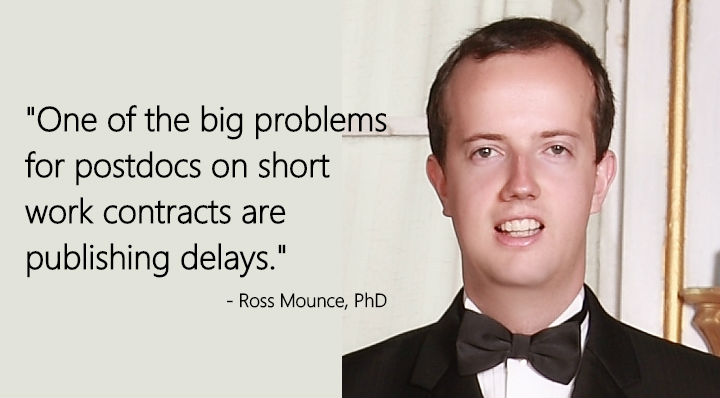“Fortune favours the brave! Publishing delays are completely avoidable.”
| 30 January, 2017 | Cesar Berrios |
|

|

Ross Mounce is January’s Specialist of the Month. He is a postdoc in Sam Brockington’s lab at the Department of Plant Sciences, University of Cambridge. In 2016, he became a Software Sustainability Institute fellow and a Data Carpentry instructor. Ross sits on the council for the Systematics Association and is a founding editor of Research Ideas and Outcomes (RIO).
F1000 Specialists are PhD students, postdocs, clinicians and researchers who help their colleagues use F1000Prime, F1000Workspace and F1000Research, and spread the word about F1000 within their institutes. If you’d like to become an F1000 Specialist yourself, you can sign up here.
What are some things you have done as F1000 Specialist?
In the Department of Plant Sciences at the University of Cambridge I’ve become the regular go-to guy for postdocs with questions about open access and preprints. One of the big problems for postdocs on short work contracts are publishing delays – papers getting stuck in review for far too many months, whilst their authors really need them to be ‘out’ and on their CV for potential future employers to see. Publishing venues like F1000Research, RIO, and preprint servers completely sidestep this problem by making sure that peer review happens only after the manuscript has been widely made available. But my colleagues often need encouragement and have questions over how such ‘rapid publishing’ is perceived. I try to help them to be bold. Fortune favours the brave! Publishing delays are completely avoidable.
What are some key feature about F1000 that you suggest others take advantage of?
I think the versioning is very useful. It is possible to go back and correct anything that was missed on the first upload. If there are small errors, or missed citations, a reader can comment on these and you can re-upload a corrected version for version 2 or 3 or 4. I made some comments on an earlier published version of Tennant et al’s (2016) review paper, and the authors read what I wrote and made small changes to their manuscript accordingly. This is very pleasing for both authors and readers. Countless times I’ve seen small errors in publications of other journals that simply can’t easily be corrected after publication. It’s frustrating. We have the technology to make documented changes to the scholarly record, so we should use it!
Do you have any tips or advice for young scientists?
Be bold. Avoid publishing in legacy journals if possible – they can only slow you down. Don’t automatically believe anything you read in the “peer-reviewed literature”, most things are wrong. Try to make your papers less wrong, or at least reproducibly wrong – new data & new methods overturn old results quite commonly.
Finally, can you tell us a little bit about your work?
My PhD was all about fossils and phylogeny but I’m currently working with Sam Brockington here at Cambridge to assess on a global scale, exsitu plant conservation in botanic gardens. It’s fascinating what you can find in the records of botanic gardens: in extreme cases botanic gardens are growing plants that are officially deemed ‘extinct’. I hope to be publishing some of this work this year, if I don’t get stifled by publishing delays that is…

|

